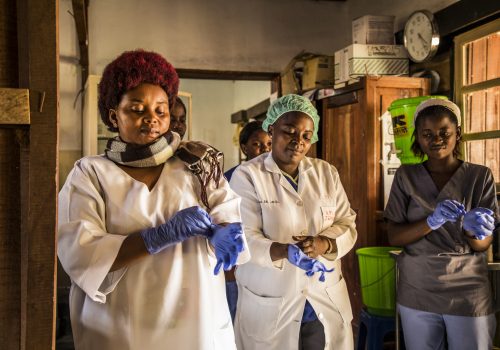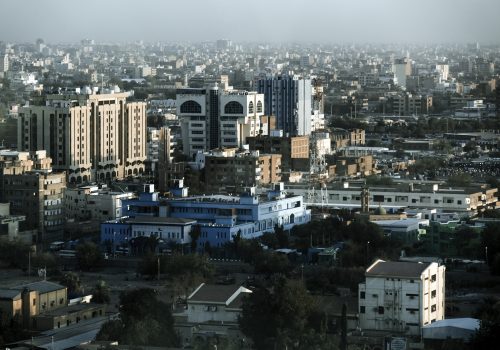Cabo Verde braces for plummeting tourism revenue
When thinking of Africa, the tiny Portuguese-speaking archipelago nation of Cabo Verde probably isn’t the first country that comes to mind. But it is representative of a subset of small island nations (think Seychelles, Mauritius, Comoros, and São Tomé and Príncipe), most of which rely heavily on tourism revenue and the outside world for critical imports. Accordingly, although Cabo Verde has only just recently confirmed its first case of COVID-19 (a British tourist, diagnosed on March 19), disruptions to travel and trade present existential threats to the country’s economy.
A nation with less than 600,000 citizens, Cabo Verde relies on tourism for approximately 25 percent of GDP, with services making up a full 60 percent. Airlines, hotels, and associated industries account for the bulk of this revenue and are already feeling the impact of the novel coronavirus. Cabo Verde Airlines announced on March 17 that it would be suspending operations for at least thirty days, in line with the government’s decision to cancel all flights and restrict entry at seaports.
Cabo Verde Airlines employs 450 people, and a month-long disruption will put a strain on the company’s finances. The airline was already struggling to pay monthly wages in December 2019, months before the coronavirus outbreak. Internationally, the Centre for Aviation has argued that a majority of world airlines could be bankrupt by May, and the International Air Transport Association (AITA) stated that the average African airline has less than two months of cash reserves on hand. The IATA claims that African airlines have already lost $4.4 billion in revenue this year, and the organization is calling for governments to intervene to keep their national carriers afloat. Though Cabo Verde Airlines is currently going through a privatization process, the government retains a significant stake; but the country’s debt to GDP stood at 129 percent as of 2018, constraining its ability to pursue bailouts.
Beyond the disruptions to tourism, Cabo Verde will have to manage trade even as supply chains are threatened. Complicating matters, the country sends almost 80 percent of its largely fish-based exports to virus-hit Portugal, Spain, and Italy, and relies on these countries plus China for nearly 70 percent of imports. Oil, rice, and cement are major import categories, highlighting the country’s reliance on trade for basic foodstuffs and raw materials.
Like the rest of the world, the country must also work to manage perceptions and avoid the spread of misinformation about the coronavirus. As a case in point, the country experienced a rush to buy fennel in February after a local social media post espoused its healing powers. If nothing else, such a response confirms that coronavirus is no longer a peripheral concern in Africa but has entered the consciousness of every corner of the continent.
Though you may not expect to see much additional analysis on Cabo Verdo in the coming weeks, its experience should be a useful reminder that caseload is not necessarily prescriptive of impact and that there are a diversity of states and sectors that are vulnerable. In a similar situation, Seychelles has already been pushed to make the drastic move of guaranteeing the salaries of all private sector employees until June in the country’s service-based tourism economy. Thus, being remote islands may spare the likes of Cabo Verde and Seychelles from health emergencies of the likes of Italy, but as economics go, not even tropical paradises are out of the virus’ disruptive reach.
Luke Tyburski is a project assistant with the Atlantic Council’s Africa Center.
Questions? Tweet them to our experts @ACAfricaCenter.
For more content, go to our Coronavirus: Africa page.
Image: Picturesque Cabo Verde. (Flickr/Pascal Subtil)


